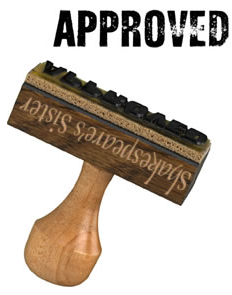
A small Spanish town council has decided to fight machismo through altering half of all road signs and traffic signals to “feminine attributes.”I’m all for it, too. One of the most pernicious attributes of sexism is regard for “male” as the norm, which manifests in usage of terms like mankind, as opposed to humankind, preference for “him” or “his” as the default pronoun, and people generically being represented on everything from street signs to “How to Perform the Heimlich Maneuver” pamphlets with exclusively male forms. Over my lifetime, I’ve seen improvements in this area, from safety cards on airplanes featuring women to language usage. I’m not a total language fiend, but I certainly prefer terms like “firefighters” to “firemen,” for example, when referring to a mixed-sex group (and the profession generally).
While all of the street signs in Fuenlabrada have always consisted of boxy male figures, the council is requiring the town to change half of the signs to show female silhouettes with ponytails or a skirt.
While I’m not too keen on using a ribbon, ponytail and/or skirt to define what a woman looks like, sometimes something as simple as identifying women as pedestrians can stick it to (even in a small way) a sexist system. And I’m all for it.
These “little” things tend to be of the sort that make people who aren’t big on the equality tip (including and especially those who are of the mind that we’ve “pretty much got that sexism thing sorted, and now I’m tired of hearing about it”) roll their eyes, but it’s not quite as pointless as all that. I remember being very young (6 or 7) when I first heard a woman referred to as a “policeman.” I asked my teacher, “Shouldn’t she be called a policewoman?” She kind of laughed, and looked a bit startled by the question, and then said, “Well, yeah—I guess she should!” It wasn’t just that I was a pedantic little twerp (which I was), but I felt a weird pang of unfairness upon hearing the dissonant moniker.
Particularly growing up in an era when women could be readily seen doing “-man” jobs—policeman, fireman, mailman, repairman, businessman, congressman, councilman, spokesman, chairman, fisherman, tradesman—before I had the words to describe what I felt or why I felt it, I had the sense that something wasn’t right. In a very real way, the use of the sex-specific terms to describe something I saw women doing too was itself transmitting sexism to me, because even though the jobs were now open to women, their titles were reflecting that they were still regarded as the province of men. To hear the inharmonious “She’s a mailman” conjured a sense of a woman doing a man’s job, as opposed to “She’s a mail carrier,” which does not.
That’s why it’s still important to address these “little” things. Telling a girl since birth that she is equal matters little if she travels within a culture that consistently sends signals contrary to that message, which is why it’s imperative to subvert the presumption that male is the default, the norm, the unique representative of humankind.
I’ve been told before that sounds like so much hyperbole to some men, but the world is a very different place when you never see yourself reflected back in so many little and big ways. Thusly, eliminating exclusively male-form street signs gets the Shakespeare’s Sister Stamp of Approval!





Shakesville is run as a safe space. First-time commenters: Please read Shakesville's Commenting Policy and Feminism 101 Section before commenting. We also do lots of in-thread moderation, so we ask that everyone read the entirety of any thread before commenting, to ensure compliance with any in-thread moderation. Thank you.
blog comments powered by Disqus